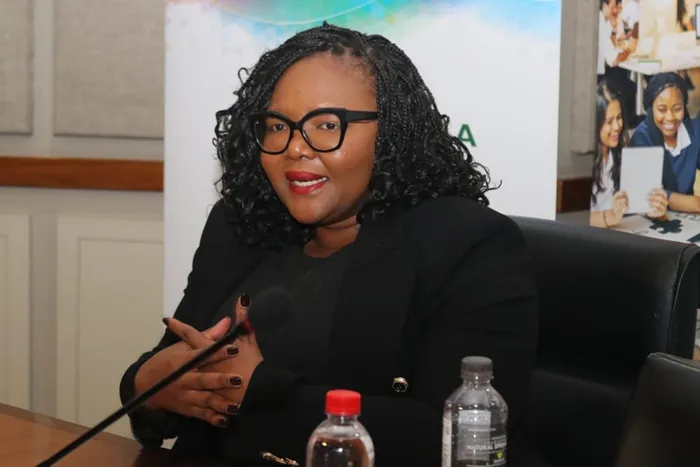
Basic Education Minister, Siviwe Gwarube, published the regulations this week for public comment, which clarify key provisions of the South African Schools Act regarding school capacity and admissions.
Image: Supplied
Newly published regulations of the Basic Education Laws Amendment (BELA) Act have affirmed that undocumented children in the country have a right to education.
Basic Education Minister, Siviwe Gwarube, published the regulations this week for public comment, which clarify key provisions of the South African Schools Act regarding school capacity and admissions.
Among the issues addressed is the admission of undocumented learners.
The regulation state: “The right to basic education extends to everyone within the boundaries of South Africa, regardless of their nationality and immigration status. Learners without valid documentation are equally entitled to admission to public schools as documented learners, provided that their parents submit, within the time frames contemplated in regulation 13, their admission applications in the ordinary course, together with all the required documents that are available to them or a sworn affidavit explaining why they are unable to provide such documents.”
It continues that the principal of a public school must, within seven working days of admission, report to the Head of Department (HOD) or the designated education district official any instance where a learner is admitted without valid documentation.
The HOD or a person duly authorised by him or her must hold the parents of such learners accountable for acquiring a birth certificate for the learner while they receive education.
“The HOD is responsible for coordinating learner admissions in public schools in collaboration with school governing bodies, with the aim of ensuring that all eligible learners are accommodated timeously and effectively in terms of the Act. If the HOD believes that a public school’s admission policy does not comply with the Act or these Regulations, the governing body must be requested in writing to review and amend the policy,” it states.
In a statement, the department said: "This marks a significant milestone in the responsible and inclusive implementation of the BELA Act, aimed at strengthening the governance, equity, and quality of education for the country’s 13.5 million learners."
Gwarube emphasised that the release of the regulations for public comment is an important opportunity for education stakeholders and the broader South African public to actively shape the future of basic education in our country.
“These regulations are instruments that will affect how schools are governed and managed, how children are admitted, and how our values as a society are reflected in our education system. I call on all South Africans, including parents, teachers, school governing bodies, civil society, education experts, and community members to participate meaningfully in this public comment process. Your voice matters. Let it be heard in shaping the policies and regulations that govern the education of your children,” said Gwarube.
The South African Democratic Teachers Union (SADTU) said: “We are still appraising the regulations. We are going to submit our comments on or before September 5 as per the Minister's call.”
Cape Argus